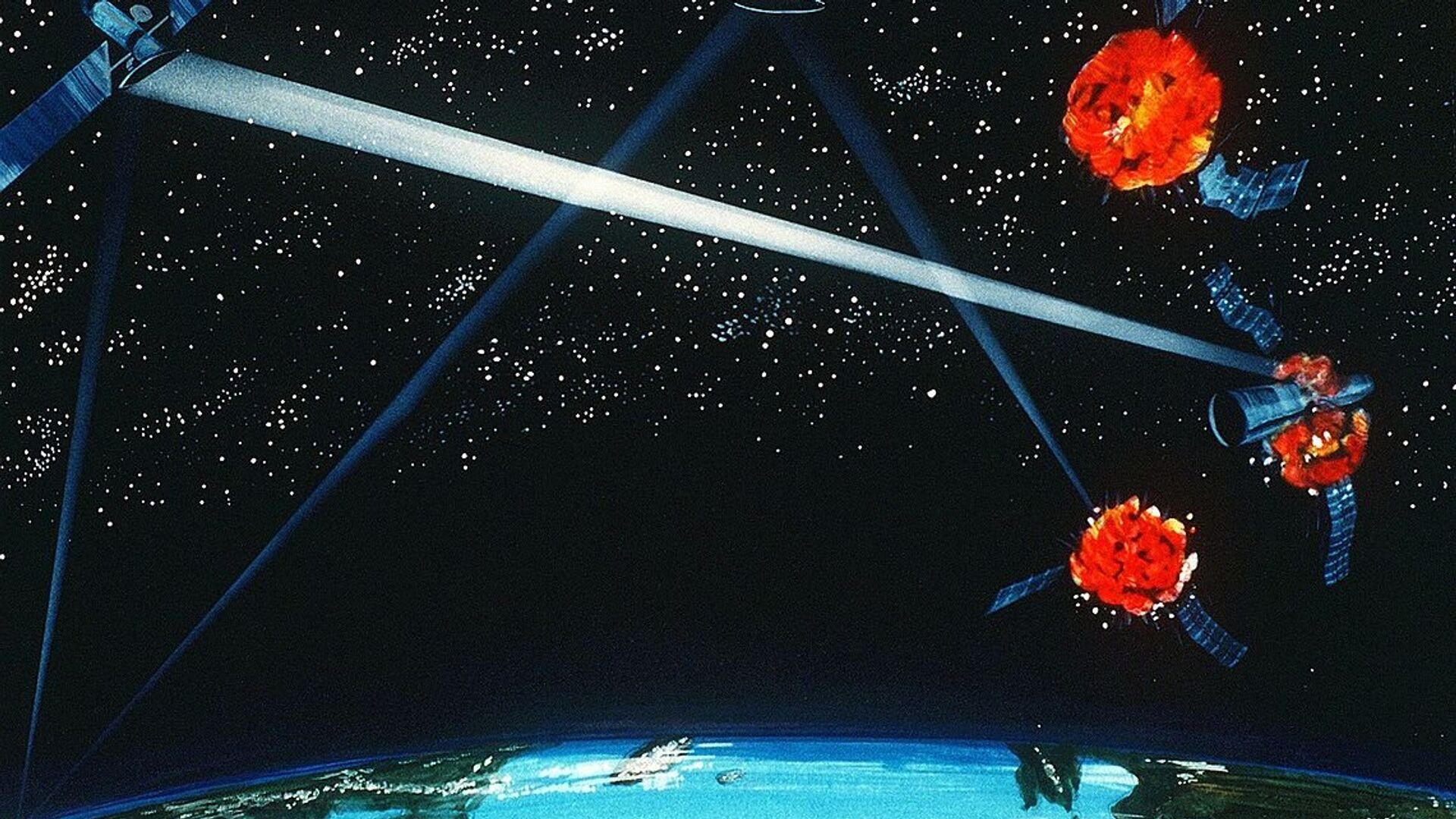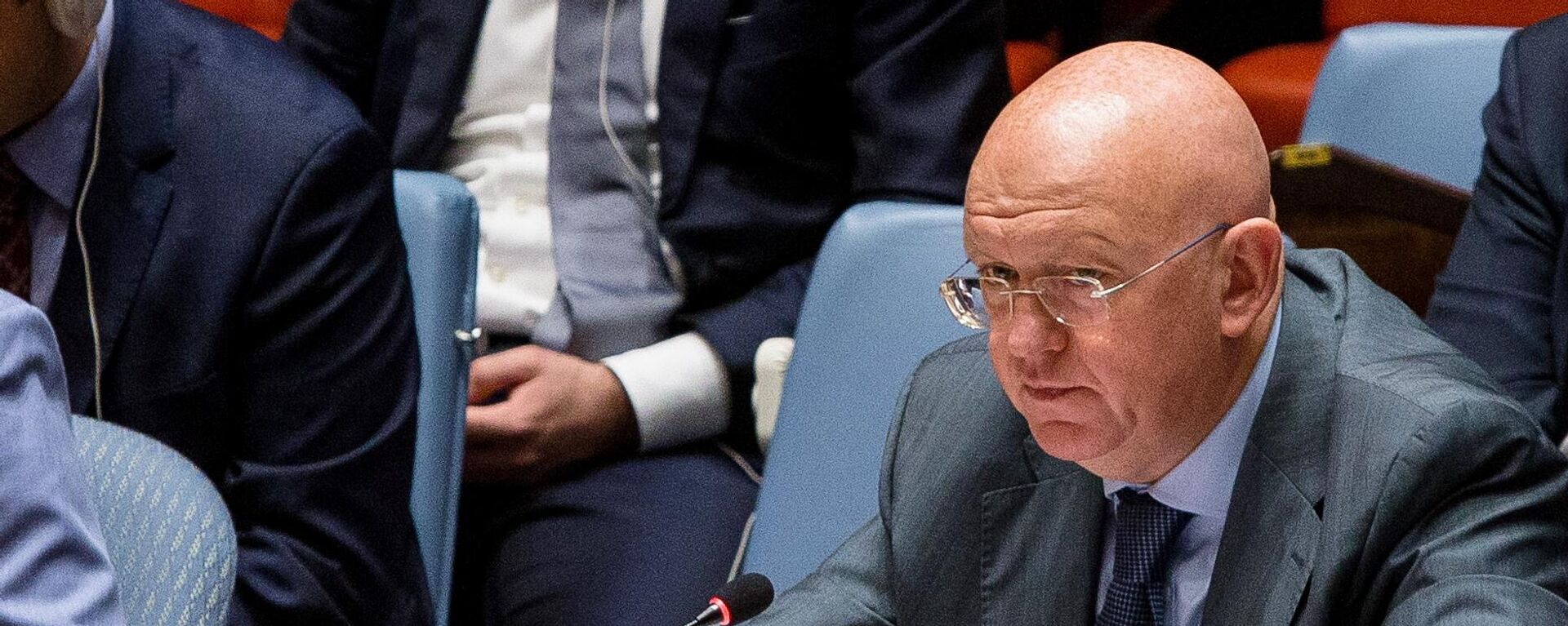https://sputnikglobe.com/20240521/why-us-opposes-efforts-to-keep-space-weapons-free-1118569943.html
Why US Opposes Efforts to Keep Space Weapons-Free
Why US Opposes Efforts to Keep Space Weapons-Free
Sputnik International
The United States and Britain's move to block a Russian draft resolution in the UN Security Council aimed at preventing an arms race in space stem from the US' unwillingness to let Russian and Chinese initiatives to ban space weapons succeed.
2024-05-21T17:47+0000
2024-05-21T17:47+0000
2024-05-21T17:47+0000
analysis
russia
west
un security council (unsc)
us
weapons
space
https://cdn1.img.sputnikglobe.com/img/103546/19/1035461939_0:129:1141:771_1920x0_80_0_0_637a945d7205e8c7e77b4072edba1ed6.jpg
The United States and Britain's move to block a Russian draft resolution in the UN Security Council aimed at preventing an arms race in space stem from the US' unwillingness to let Russian and Chinese initiatives to ban space weapons succeed, Dmitry Stefanovich from the Moscow-based Institute of World Economy and International Relations at the Russian Academy of Sciences says.While Russia and China, as well as a number of other countries, insist on adopting a legally binding document that would ban the very concept of stationing weapon systems in space, Western powers such as the US want the situation where anyone can deploy anything they want in space as long as their behavior is deemed correct, he explains. Therefore, the West is promoting the concept of restricting what spacecraft can do in space whereas the Russo-Chinese approach is to prohibit sending weapons into space, Stefanovich surmises. Regarding speculation about the possible deployment of nuclear weapons in Earth’s orbit, Stefanovich points out that the United States currently enjoys a distinct advantage in the “dual-use space infrastructure,” i.e. spacecraft and satellites that can be used for both commercial/scientific and military purposes. Since destroying large satellite constellations through conventional means, one by one, would seem a daunting task, it begets concerns that nuclear weapons might be used to accomplish such tasks, he explains. Stefanovich also lamentas that any progress in resolving concerns about weapon deployment in space that was made in the past few years was essentially undone amid the ongoing conflict between the West and Russia, as well as the confrontation between the United States and China. “Currently, everyone is looking for a way to weaken their adversary rather than for some kind of mutually acceptable solution,” he says.
https://sputnikglobe.com/20240520/west-confirms-its-intention-to-militarize-space---nebenzia-1118551806.html
russia
west
Sputnik International
feedback@sputniknews.com
+74956456601
MIA „Rossiya Segodnya“
2024
Sputnik International
feedback@sputniknews.com
+74956456601
MIA „Rossiya Segodnya“
News
en_EN
Sputnik International
feedback@sputniknews.com
+74956456601
MIA „Rossiya Segodnya“
Sputnik International
feedback@sputniknews.com
+74956456601
MIA „Rossiya Segodnya“
space based weapons, space weapons ban, unsc space weapons resolution
space based weapons, space weapons ban, unsc space weapons resolution
Why US Opposes Efforts to Keep Space Weapons-Free
The United Nations Security Council failed to adopt a resolution drafted by Russia on prevention of weapon deployment in space this week, with seven countries - including the United States and Britain - voting against it.
The United States and Britain's move to
block a Russian draft resolution in the UN Security Council aimed at preventing an arms race in space stem from the US' unwillingness to let Russian and Chinese initiatives to ban space weapons succeed, Dmitry Stefanovich from the Moscow-based Institute of World Economy and International Relations at the Russian Academy of Sciences says.
While Russia and China, as well as a number of other countries, insist on adopting a legally binding document that would ban the very concept of stationing weapon systems in space, Western powers such as the US want the situation where anyone can deploy anything they want in space as long as their behavior is deemed correct, he explains.
Therefore, the West is promoting the concept of restricting what spacecraft can do in space whereas the Russo-Chinese approach is to prohibit
sending weapons into space, Stefanovich surmises.
Regarding speculation about the possible deployment of nuclear weapons in Earth’s orbit, Stefanovich points out that the United States currently enjoys a distinct advantage in the “dual-use space infrastructure,” i.e. spacecraft and satellites that can be used for both commercial/scientific and military purposes.
Since destroying large satellite constellations through conventional means, one by one, would seem a daunting task, it begets concerns that nuclear weapons might be used to accomplish such tasks, he explains.
Stefanovich also lamentas that any progress in resolving concerns about weapon deployment in space that was made in the past few years was essentially undone amid the ongoing conflict between the West and Russia, as well as the confrontation between the United States and China.
“Currently, everyone is looking for a way to weaken their adversary rather than for some kind of mutually acceptable solution,” he says.



